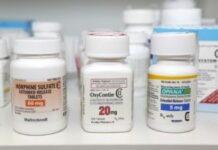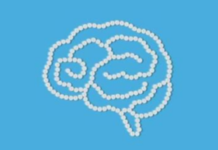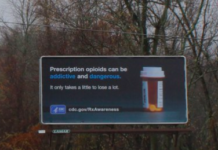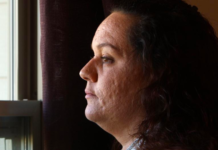Can Education Level Predict Prescription Drug Misuse in Young Adults?
A new study examines the extent to which patterns in prescription drug misuse and substance use disorder symptoms can be predicted by education level
CDC Advises Nonopioid Treatments for Chronic Pain
Primary care clinicians and mental health providers face a particular set of challenges when treating individuals with chronic pain. These problems are compounded by...
Drug Dealers in Lab Coats
From The New York Times: For decades, America has waged an ineffective war on illicit drug dealers and drug lords. However, we have failed to...
When Legal Drugs Harm and Illegal Drugs Help
From Scientific American: In a day and age when people are increasingly becoming addicted to prescription drugs, and increasingly helped by the therapeutic effects of illicit...
The Secretive Family Making Billions From the Opioid Crisis
In this piece for Esquire, Christopher Glazek profiles the Sacklers, the family that owns the pharmaceutical company that manufactures OxyContin. He investigates how the Sacklers' marketing...
Rates of Opioid Use Remain High Among US Adolescents
Researchers investigate trends in opioid use, prescriptions, misuse, and access reported by adolescents and young adults.
Polypharmacy is Compounding the Opioid Epidemic
From The Lown Institute: The recent deaths of several beloved musicians, actors, and other public figures have brought to light the dangers of taking multiple, potentially fatal drugs.
"In...
Are Pharmaceutical Companies to Blame for the Opioid Epidemic?
From The Atlantic: As opioid abuse rises, some attorneys general and advocates are filing lawsuits against pharmaceutical companies for misleading doctors and the public about...
Calling it “Brain Disease” Makes Addiction Harder to Treat
From The Boston Globe: Conceptualizing addiction as a biological brain disease is often ineffective, as the biological model overlooks the important psychological and social factors that...
Opioid Bill Includes Involuntary Commitment
From EDS and Chronic Pain News & Info: Recent legislation has proposed measures that permit people to be involuntarily committed on the basis of perceived...
Experts Warn of an Emerging ‘Stimulant Epidemic’
From Medscape: While policymakers and members of the general public are justifiably focused on addressing the opioid epidemic, there is another epidemic that may be...
An Overlooked Factor in the Opioid Crisis
From It's Not Just an Opioid Crisis: The media are saturated with coverage of the familial and community devastation that has resulted from the opioid...
Why Isn’t Big Pharma Paying for the Harm it Caused?
From Alternet: The pharmaceutical industry has played a major role in causing the opioid crisis by downplaying the potentially addictive and fatal effects of narcotic pain...
America’s Opioid Crisis Proves the Limits of Capitalism
In this piece for RT, Slavoj Žižek discusses the impact of capitalism on America's opioid crisis, exploring the factors that have driven people to use drugs...
The More Opioids Doctors Prescribe, the More Money They Make
An exclusive analysis by CNN and researchers at Harvard University found that opioid manufacturers are paying physicians huge sums of money — and that doctors with higher...
The Drug Industry’s Triumph Over the DEA
In this piece for The Washington Post, Scott Higham and Lenny Bernstein investigate how a handful of members of Congress, allied with some of the nation's...
Many Physicians Don’t Understand Key Facts about Prescription Opioid Addictions
A Johns Hopkins Bloomberg School of Public Health survey of 1000 US primary care physicians found that many do not understand basic medical facts about the addictive nature of the opioids they are prescribing.
The Long History of Discrimination in Pain Medicine
From The Atlantic: Throughout history, doctors have often stigmatized and discounted patients suffering from pain without visible injury. The rise of X-rays and other "objective"...
British Medical Association Takes On Prescription Drug Dependence
Last year the British Medical Association (BMA) released a report on dependence and withdrawal from prescription drugs including benzodiazepines, z-drugs, opioids, and antidepressants. Now,...
Pharma CEO Says he can Stop Profiting off Opioid Epidemic
From The Onion: "Visibly trembling as he wiped beads of perspiration from his forehead, Arcelis Pharmaceuticals CEO Paul Corrier told reporters Wednesday that he could...
My Grandmother is a Drug Addict—and I Blame Big Pharma
In this piece for Alternet, Joshua Wilkey discusses his grandmother's addiction to opioid painkillers and details the role that pharmaceutical companies have played in Appalachia's opioid...
Bill to Force Pharma to Disclose Payments to Advocacy Groups
From STAT: Last month, Senator Claire McCaskill released a report showing that opioid manufacturers had funneled nearly $9 million to patient advocacy groups between 2012...
Opioid Use in Pregnancy Dangerous and Understudied
Nora Volkow, the director of the National Institute on Drug Abuse (NIDA), authored an editorial for BMJ this month warning that the opioid abuse epidemic could have dangerous consequences for pregnant women. While the effects of opioid exposure on the developing brain are yet unknown, research suggests that infants may suffer from withdrawal syndrome, nervous system defects, and impaired attachment with the mother.
Psychologist Rethinks Psychotropic Medications, Calls for Renewed Dialogue
Psychologist and Professor Amber Gum has published the story of her personal journey of rethinking psychotropic medication in a special issue on "The Politics of Mental Health" in The Journal of Medicine and the Person. Influenced by Mad in America and the work of Robert Whitaker, Gum became aware of evidence that “suggests that psychotropic medications are less effective and more harmful than most believe” and now hopes to encourage other mental health professionals and researchers to engage in open-minded, critical self-assessment of standard practices.
FDA Proposes That Doctors Learn About Acupuncture
From STAT: The FDA is now recommending that physicians learn about a variety of approaches to pain management, including non-pharmacologic therapies such as chiropractic care...






























